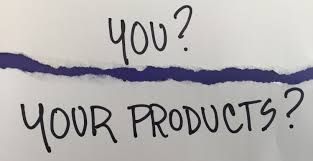If all you talk about in a sales appointment is your product and how great it is, you will talk your way out of a lot of sales. Over the years I have learnt the value of questions in many life situations and asking questions and listening closely will bring many more sales. In fact, when you ask the right questions in the right way you can end up having your prospect do all the selling for you. At the very least, you’ll learn a lot about what the prospect wants from your product, which means you can focus your presentation on just those points that will provide the most benefits to the prospect.
Asking your prospect, a series of open-ended questions during your presentation serves three important purposes. First it helps you to confirm whether or not the prospect is a good fit for your product. Second, it helps you to confirm whether or not the prospect is ready for your product’s benefits. Third, by getting prospects to talk about various benefits and what they think about them, you sneak the information past the prospects “salesperson filter”.
The following are some examples that will give you a starting place to start your campaign of “ask, don’t tell”.
Buying History
By learning more about the prospects previous buying history from his or her point of view:
- What experiences, good or bad, have you had with this type of product?
- When did you last buy a (product type)?
- What processes have you used in the past to buy a (product type)?
- What have you already tried to fix the problem with your current (product type)?
Purchase-Specific Questions
These questions relate to the specific transaction you are hoping to achieve. Purchase questions help you identify specific needs and to design your dialogue around them.
- What prompted you to meet with me today?
- What qualities do you look for in [product]?
- What quality is most important to you?
- Why would you like to have a [product]?
- What is your timeline for buying a [product]?
- What is your budget?
- Who else is involved in the purchase decision?
Rapport Building Questions
These questions get your prospects talking about themselves and help you develop a relationship of trust. They can also help you identify the prospect’s likes and dislikes, which is valuable information.
- How long have you been with the company?
- How old are your children? How many?
- What would you like this [product type] to do for you?
Probing Questions
If a prospect gives only a brief response to an important question, try drawing out more information.
- What else can you tell me about that?
- Can you give me an example?
- Can you be more specific?
- How did that affect you?
Resistance-seeking Questions
Until your prospect voices his resistance to buying you can’t do anything to relieve his or her concerns. If a prospect hasn’t voiced any reasons for not buying then a little questioning can draw them out.
- What are your thoughts so far?
- Do you have any concerns? What are they?
- What other subjects should we discuss?
- Is there any reason we shouldn’t move forward?
